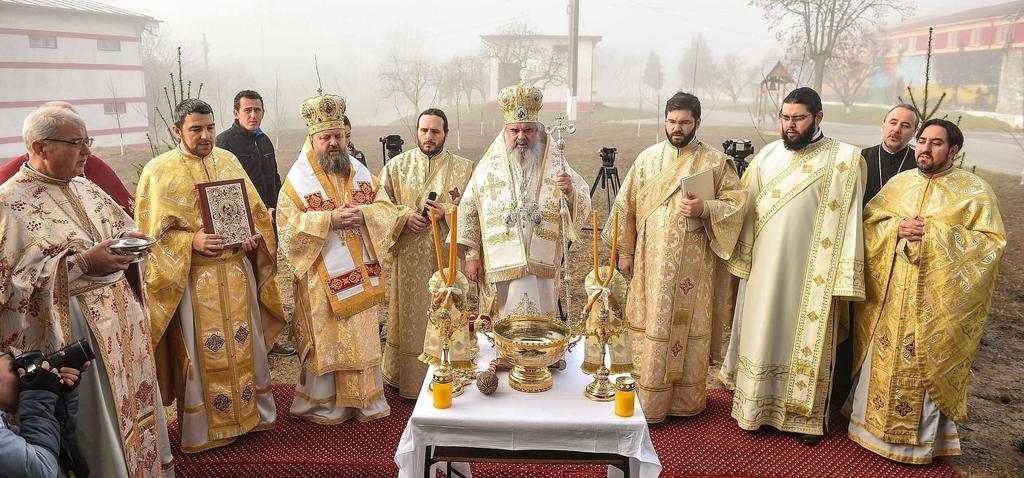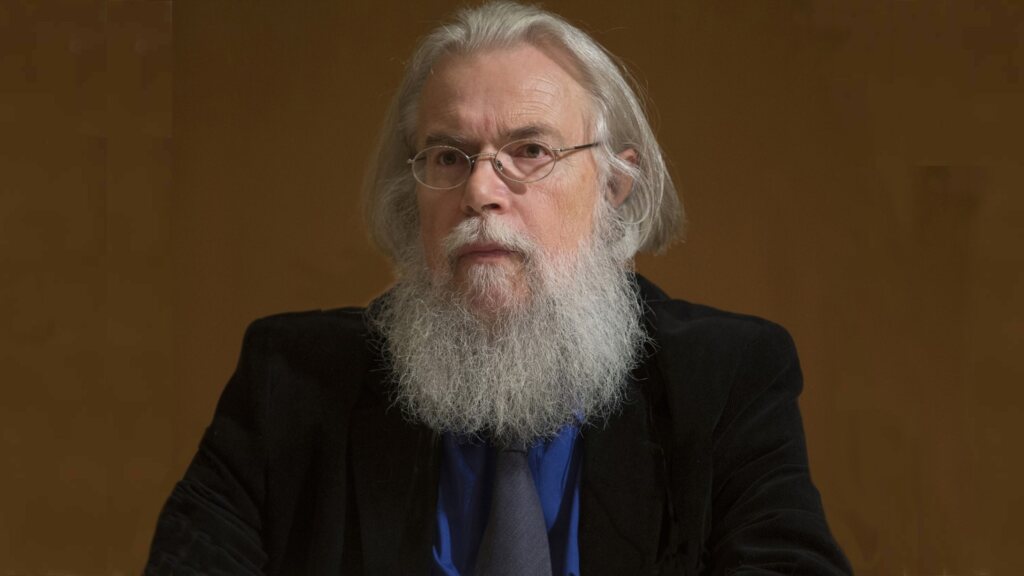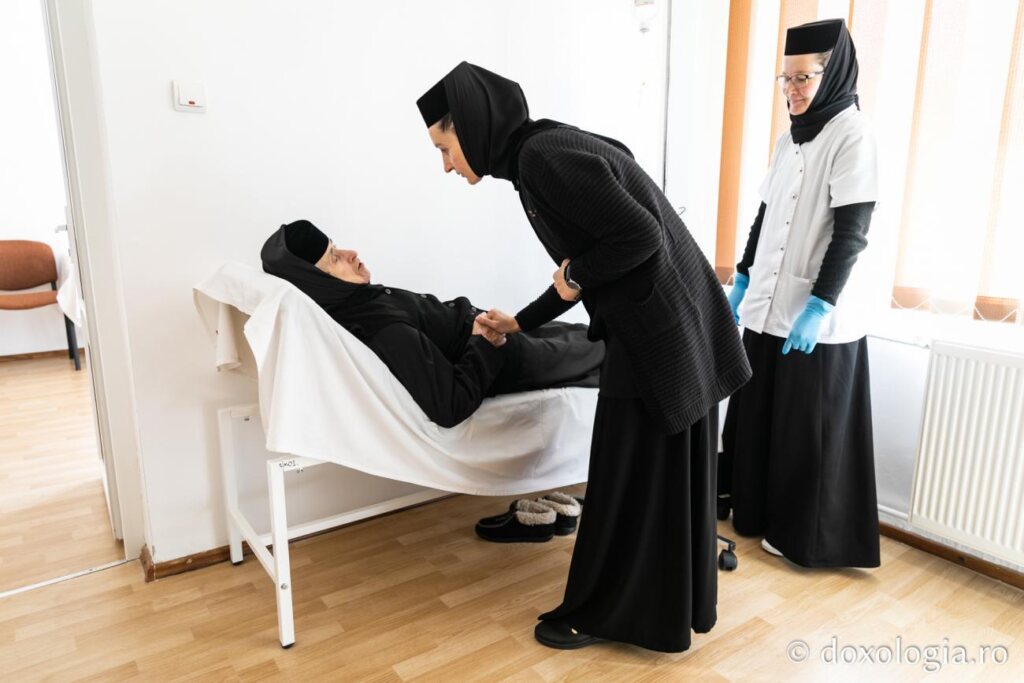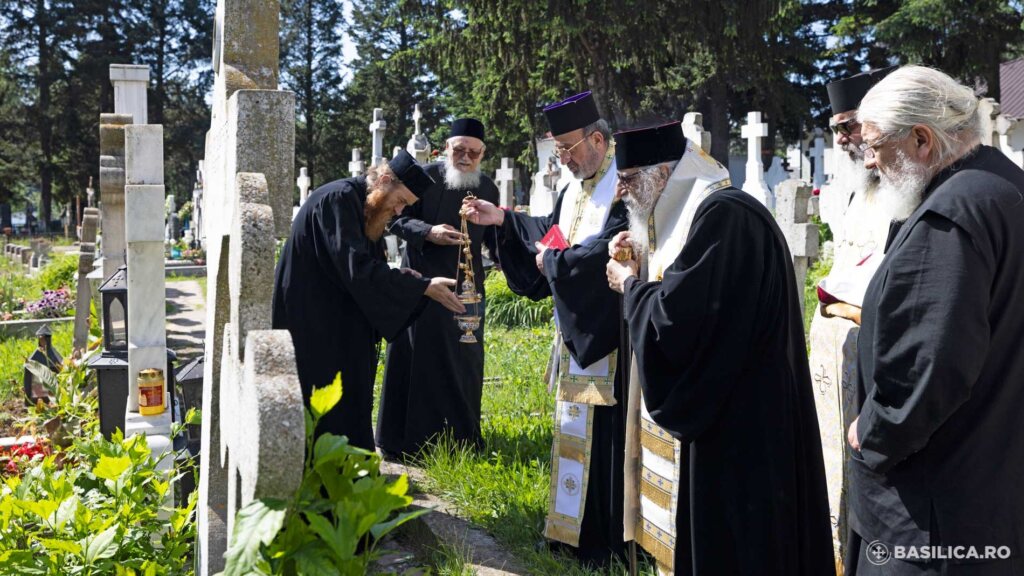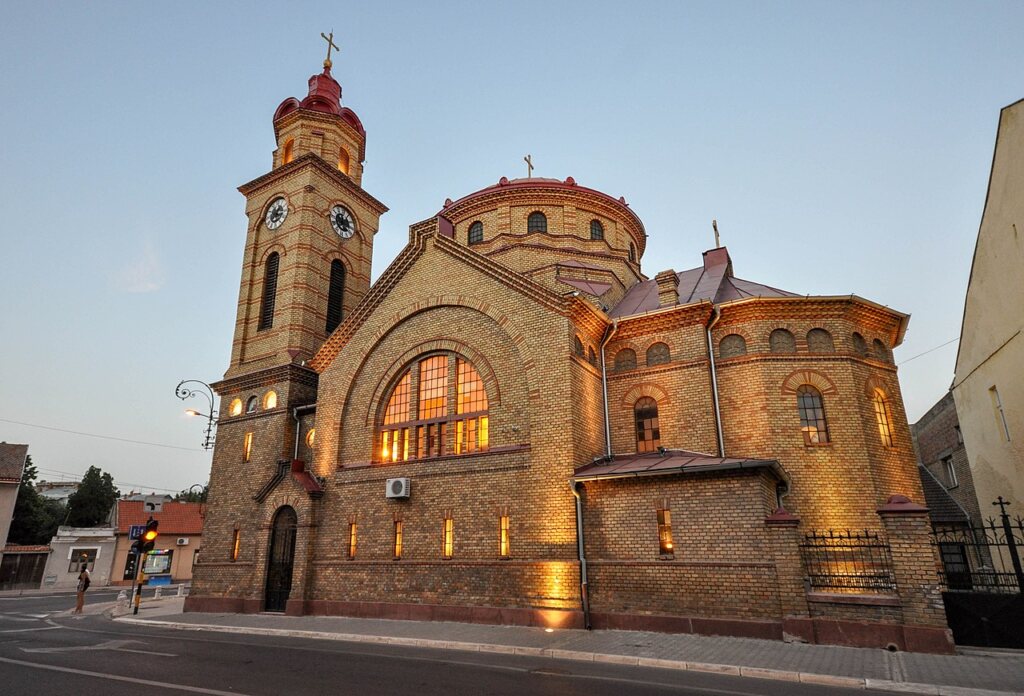Saturday, 5 December 2015, His Beatitude Daniel, Patriarch of the Romanian Orthodox Church, and His Grace Timotei Prahoveanul, Assistant Bishop to the Archdiocese of Bucharest, consecrated Saint Hierarch Nicholas Chapel of Jilava Penitentiary, Ilfov South Deanery.
His Beatitude Patriarch Daniel showed in the sermon delivered at the end of the celebration that the consecration of a penitentiary chapel is a very important work from a pastoral, spiritual, social and human, in general, point of view.
The consecration of a church represents the consecration of a gate of heaven
His Beatitude emphasised the importance of the Church for the spiritual life of the faithful, explaining to those present that the church, as a place of worship, is the only place in the world where we receive the foretaste of the eternal life: “It is in the church that we prepare for the universal Resurrection, at the end of ages. We prepare for the resurrection of the soul from the death caused by sin. We prepare through confession, through the forgiveness of sins and through the Holy Communion with the Body and Blood of Christ given from the Holy Chalice for the forgiveness of sins and for eternal life. The Church is said to be the place where the forgiveness of sins is received and this is why sins are forgiven only by God. But Christ, our Lord, gave the power to forgive sins to His Apostles too and through them to the servants of the Church. Nobody can be saved, can enter the Kingdom of Heaven unless one’s sins are forgiven. That is why the Church is called the “Antechamber of the Heavenly Kingdom” and the “Laboratory of Resurrection”.
Un-passionate, non-possessive and disinterested love is received first of all through prayer
Then, the Patriarch of Romania spoke about the importance of prayer in penitentiary: “The human being limited in its social freedom feels restricted in his opportunity to travel, act, take initiative, and thus, acquiring inner freedom, namely the freedom to love God and his fellow human beings, is very useful. Un- passionate, non-possessive and disinterested love is developed first of all through prayer. The human being who is praying to God establishes a spiritual invisible, yet real relationship with God. In this conversation, God does not answer in words, but through a peaceful, loving and merciful presence. This is why the humans who pray a lot pacify their soul and senses. They attain an inner freedom greater than the outer freedom of those in society. The limited and temporary human being joins and befriends the Merciful, Unlimited and Eternal God through prayer”.
“As those imprisoned for many years say, prayer is not only a refuge in a penitentiary, but also a way of humanizing, of reaching interior peace and spiritual growth. There were people who were very religious before, while free; but in prison their prayers were more intense. This is why Father Dumitru Staniloae said when he was asked after five years of imprisonment: <<What have you learned there?>>, he answered <<I have learned how to pray>>, although he was a priest and professor”, His Beatitude also said.
In prayer, the human being’s soul is free
Apart from the individual aspect of the prayer, there is also a social one, His Beatitude Patriarch Daniel said: “The human being deprived of freedom thinks a lot of his dear ones at home. The fact that one thinks of them and worries about them is very worrying, but if one remembers them in prayer he joins them in this prayer, although physically they are separated. When we remember someone in prayer it means that we love him/her in God and entrust those for whom we pray to the merciful love of God. This remembrance of the dear ones in the chapel, in the cell, means an inner freedom, as well as love spiritually expressed towards those who are not physically close. When we pray for parents, children, relatives or friends, we keep them in our soul, no matter how many physical things we have around. When the soul of the one who prays is enlarged, it becomes sensitive, and one does no longer think only of oneself, but forgets about oneself and thinks of those whom he/she loves”.
Saint Nicholas represents the merciful love of God
His Beatitude Daniel has also spoken about Saint Nicholas who is to be celebrated tomorrow, the 6th of December, in the Romanian Orthodox Church: “Saint Nicholas is one of the most popular saints both in the Eastern and in the Western Church, because he was merciful. His mercy generated his popularity. There are very educated Holy Fathers, but who have not become so popular like Saint Nicholas who represents the merciful love of God shown to the poor people and especially to children. The saint patron of this church, Saint Nicholas, to whom we added the Saints protectors of the chapels in penitentiaries, Saints Peter and Paul the Apostles, shows that the stress lays on the merciful, humble and generous love. We also want to express this dimension of the merciful love through the fact that we prepared packages for 1,340 inmates of Jilava Penitentiary. We want to unfold this initiative in all the penitentiaries of the Archdiocese of Bucharest where there are over 4,500 inmates”.
Santa Claus is the impersonation of the merciful love of the Heavenly Father
“Sometimes children take Saint Nicholas for Santa Claus. But Santa Claus is anticipated by Saint Nicholas through the kindness of his soul and generosity. In reality, Santa Claus is the personification of the merciful love of the Heavenly Father who sends His Son, Jesus Christ, into the world to save it. There is a question in the carols of Dobrudgea referring to Saint Andrew the Apostle: “Who is Santa Claus?” and the answer is: “Santa Claus is your father and our God”, His Beatitude explained.
After delivering the sermon, His Beatitude Patriarch Daniel awarded the following distinctions as a sign of appreciation for the work done at Saint Hierarch Nicholas Chapel:
–Order of Saint John Chrysostom for clergy, to Father Dumitru Beşleagă from Jilava Penitentiary, Ilfov South Deanery;
– Rank of oikonomos-stavrophoreto father Mihai Cristian Popescu from Lady Oltea Parish, Deanery of District 2 Bucharest;
–Sanctus Stephanus Magnus Order to Messrs Adrian Gaspar and Dumitru Crestin;
–Homage Diploma of Saint John Chrysostom to Mr Cătălin Claudiu Bejan, general director of the National Penitentiaries Administration and to Mr Cătălin Stroe, director of Jilava Penitentiary.
Then, His Grace Timotei Prahoveanul, assisted by a group of priests and deacons, celebrated the Divine Liturgy in the place of worship newly consecrated.
